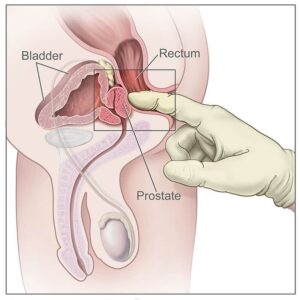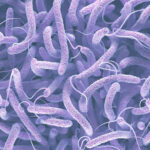5 things you need to know about your prostate as a man – The discomfort from prostate gland issues can make a man prostrate!’. Source: unknown; Relevance: 100%
Imagine going to the wash room to pee but you get there and the pee just wont come despite the urge to do so…. Now that is definitely something that only one gland can cause. And that my friends is one of the most common presentations of prostate enlargement!
And that’s definitely something I have witnessed on multiple occasions, so I fully agree with whoever made that statement above.
But why do so many men crumble to the prostate gland?
For one thing, only men can, because the prostate gland is only found in males, so no surprises there.
In this article lets learn 5 things you need to know about your prostate as a man.
1. The prostate gland is a small organ,

It measures about 3 to 5 cm across, and located just below the bladder and in front of the rectum in men. The urethra passes through the prostate gland as it leaves the bladder. The significance of this arrangement will become apparent later in this article.
2. The prostate gland plays a crucial role in the male reproductive system.
The primary function of the prostate gland is to produce and secrete a fluid that forms a significant portion of semen. This fluid nourishes and protects sperm, helping them survive and function effectively during ejaculation.
3. Prostate gland enlargement also known as Benign Prostatic Hyperplasia (BPH)
All men who live long enough will experience it, but not all men with prostate enlargement will experience severe forms of symptoms requiring doctors attention. The cause of this prostate enlargement is not exactly known, but the fact that men who have had their testicles removed, earlier in life due to testicular cancer or other reasons, do not experience prostate enlargement means there is some association with testicular changes.
4. Prostate specific antigen (PSA) is a protein produced by the prostate gland and plays a role in helping semen function normally.
PSA is only produced by the prostate gland, which means its overproduction can be used to determine the overall health of the prostate gland. It is for this reason that the PSA Test is recommended for all men from age 40; earlier if there is a positive family history. A normal PSA Test, however, does not rule out the presence of prostate cancer. There are parts of the prostate gland that do not produce PSA, as such cancer originating in these parts will not have any effect on PSA levels. Therefore a more thorough prostate exam is always recommended.
Symptoms of prostate illnesses depends on the cause, but generally:
- BPH will cause difficulty initiating urination despite an urge to urinate, straining, weak urine stream with dribbling at the end of urinating. There is also incomplete emptying of the bladder, resulting in frequent visits to the bathroom.
- Prostate Cancer, as with most cancers is generally painless until much later when the disease has spread to the spine resulting in severe low back pain. Other symptoms may however be similar to those of BPH.
- Prostatitis is inflammation of the gland due to infection or other causes. Symptoms are similar to BPH but with associated pain with urination with or without blood in the urine.
It’s essential for men to be aware of their prostate health and to have open discussions with their healthcare providers about any concerns or questions they may have regarding prostate conditions, screening, and treatment options. Regular check-ups and early detection can significantly improve outcomes for prostate-related issues, including prostate cancer. I re-emphasis this point because men are known for not prioritizing their health. It is therefore important that we pay close attention to some of these as early detection will save lives.

Know this, if you are a man and you have normal functioning testes, then you will develop one prostate related issue at some point as you age, so take charge and get ahead of the problem instead of waiting to be caught by surprise.






